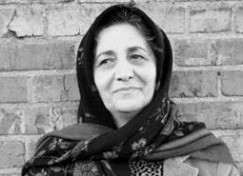
This post was written by Sarah McAfee, a former member of our team.
Several years ago, while working for an affordable housing organization, I met an Iraqi refugee named Haiffaa. A quiet, grandmotherly woman, her stilted English had a kind of gravitas and confidence that made you hang on her every word. Her story was intense: brutal violence, lost loved ones, desperate fleeing to under-resourced refugee camps, and more sorrow than any one person or family should ever shoulder. But there she was, trying assertively to adjust to a new reality and keep her family intact.
Haiffaa was unique and extraordinary as an individual, but her situation was not. Most of the over 300 families living within her apartment complex came from countries in Southeast Asia, the Middle East, or Africa, and could relate to the horrors she had seen and endured. They all had something else in common: long-neglected health issues. Whether due to the extreme conditions of their life prior to arriving in the US, a lack of understanding of how to access care in this new country, or culture and education differences that may not have prioritized some kinds of care, I saw firsthand that the health needs of this community were significant.
Although the refugee population in Colorado is relatively small—around 50,000 refugees have arrived over the last 35 years—World Refugee Day was June 20, and it seems an appropriate time to consider how we as a state are caring for our newest neighbors and residents. By definition, refugees are those who have been forced to flee their home under the threat of persecution, conflict, or violence. In the US, the State Department determines how many refugees our country will accept annually: for 2013, it was 70,000. While the US welcomes more refugees per year than all other countries combined, only about one percent of all refugees are ultimately resettled in another country.
Last year we released an infographic illustrating the health experiences of Colorado’s refugees, from their path of resettlement to their most common health issues. In addition, we know that the main health and health care challenges facing refugees are the same challenges facing the medically underserved, broadly: access to primary care, access to mental and oral health services, difficulty navigating the health care system, and issues with cost and transportation. However, for refugees, these challenges are magnified by the barriers of language and culture.
The work required to overcome these barriers isn’t necessarily different than what’s already underway through the Colorado Refugee Services Program and countless other projects working to improve the health care system on behalf of all those in need. However, as we carry out this work, it’s important that we acknowledge and aim to understand the very different life experiences that has brought our refugee population to Colorado.
A time-honored way of building understanding is listening to another’s story. Our Colorado HealthStory project has collected some stories from refugees, and I encourage you to listen to their experiences. Tesfahunega suffers from congestive heart failure, and shared his story of countless emergency department trips trying to get the care he needs. Mesele has diabetes, and cannot afford his insulin, so he goes without. Sara is a nurse practitioner that works with refugees, and her patients’ ability to get and accept care is affected by their culture.
I hope you’ll (belatedly) celebrate World Refugee Day with me by “honoring the courage, strength and determination” of these refugees and their stories.




